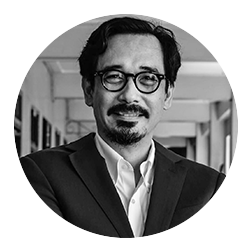 By Atty. Jose Mari BFU Tirol
By Atty. Jose Mari BFU Tirol
(The author is the dean of the College of Law of the University of San Agustin)
Labor Secretary Silvestre Bello III recently questioned the need for licensure examinations and recommended the abolition of the licensure examinations for nurses, dentists, and engineers, and the bar examinations. A day later (July 8), he said that he was not calling for their abolition, but for the Philippine Nurses Association and Professional Regulation Commission (PRC) “to study the possibility”. As expected, his statements inspired many comments and criticisms, both constructive and crass.
His call stems from the saying that in the Philippines, the PRC regulates all professions except the legal profession, which is under the Supreme Court (SC).
Parenthetically, there are other professions that are not regulated by the PRC or the SC. For example, civil servants, both professional and sub-professional, are under the CSC, professional drivers are under the LTO, and the practitioners of the world’s oldest profession obtain their permits from their LGUs. Gross immorality is a ground for disciplinary action for the first three, what about the last two especially the drivers who are sweet lovers?
Kidding aside, professional licensure examinations serve a very vital function in our society. They are the State’s way of ensuring that only those who have complied with the necessary educational and other requirements, and possess the requisite knowledge and skills, will be granted the privilege to engage in professional activity. Even Singapore, which then-vice presidential candidate Alan Peter Cayetano said the Philippines will be under a Duterte presidency, administers a bar examinations for prospective lawyers.
Nevertheless, there is some merit to the Secretary’s call. None of the licensure exams are perfect indicators of the examinees’ capacity (moral, intellectual) to practice their intended professions. Not a few professionals have been disciplined by the PRC or SC, and even had their licenses taken away from them, after it was proven that they did not possess the necessary fitness to continue being members of their chosen profession. As I have said to my students about the practice of law: “strive to enrich jurisprudence, but not at your expense.” and the bar examinations (which also applies to all other licensure examinations): “Not everyone who becomes a lawyer, deserves to be one. Not everyone who deserves to be a lawyer, becomes one.”
One who calls for (or “to study the possibility” of) the elimination of the board and bar examinations implicitly states that they are a problem. What is the problem, and will their elimination solve it? Furthermore, logic dictates that the proponent would also call for the abolition of the Civil Service examinations, along with the qualifying examinations that government offices (including DOLE) administer to their applicants. Are these examinations problems too?
This is not to say however that laymen have no say in how they live their lives, especially those who have little or no access to professional help. They can, and some are unfortunately forced to self-medicate, construct their houses without the assistance of architects and engineers, and represent themselves in court, subject only to their ultimate obligation to be responsible for the consequences of their actions. As I said in a previous piece (The Rule of Law [and lawyers] according to populist Machiavellian logic and Shakespearean prose, June 10, 2021), lawyers “…do not have a monopoly of the necessary qualifications, skills, and responsibility to protect and uphold the Rule of Law; it is everyone’s obligation to do so. Nevertheless, common sense dictates that one who has a problem should seek a trained and competent professional who can provide him with the assistance he needs and deserves. After all, a little learning is a dangerous thing…”
Will abolishing the licensure examinations increase the number of qualified professionals in the country? Yes, if they are viewed simply as such – examinations. But they are more than that, since they serve a very vital societal function, as discussed above.
At any rate, those who do not possess licenses from the PRC and/or the SC are a very significant human resource. Their knowledge qualifies them to become paraprofessionals, who can give our countrymen first-aid solutions to their concerns, before they are referred to a licensed professional. I submit that this is the proper way to appreciate them, and to view the situation that the good Secretary wants to study.




















